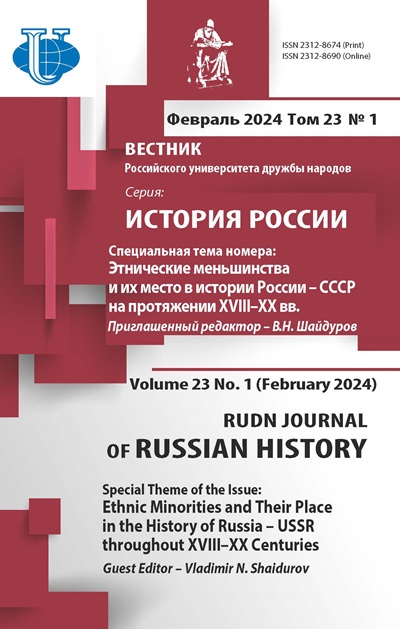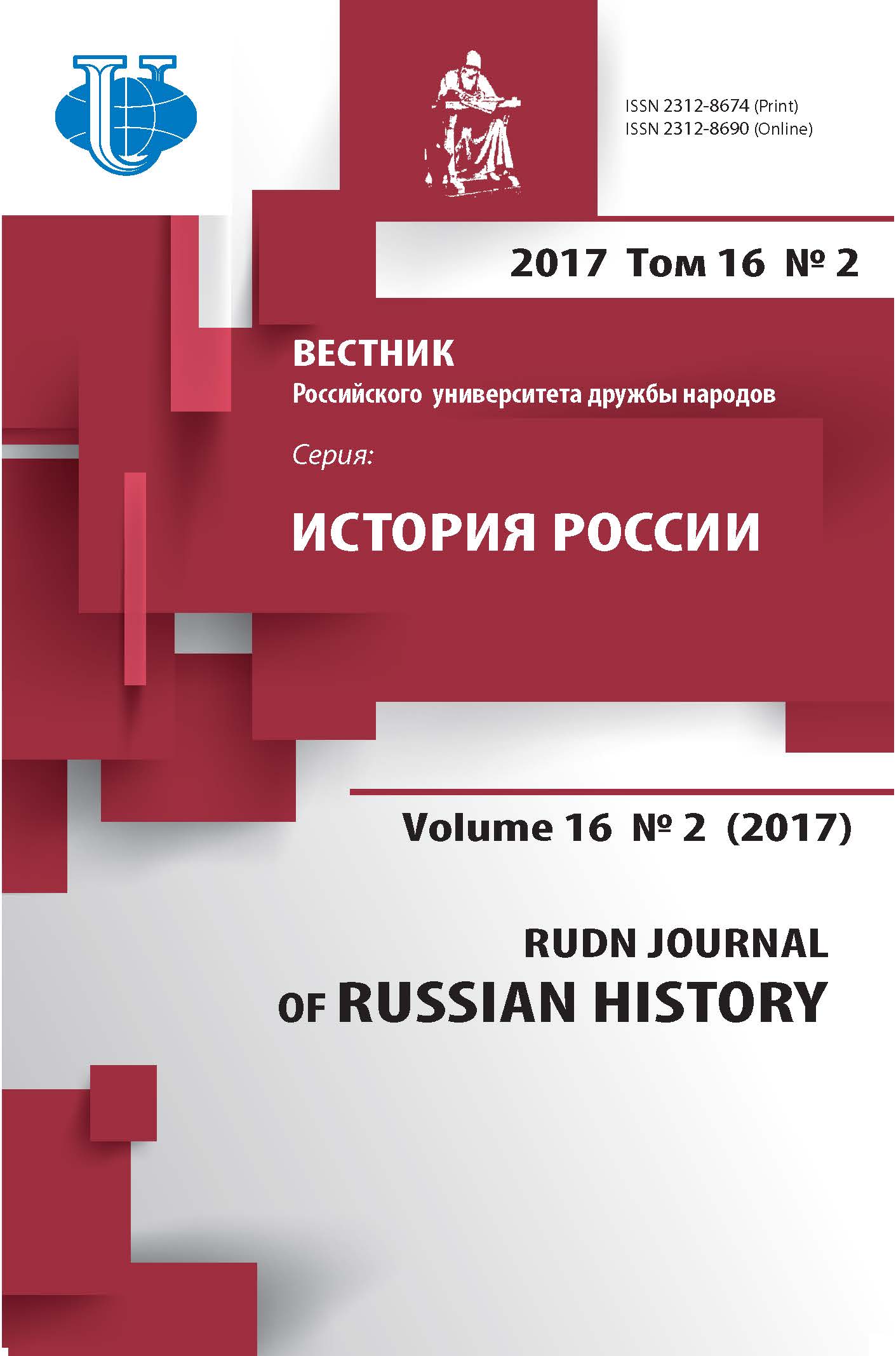EVERYDAY LIFE OF INTERNEES IN KAZAN PROVINCE IN 1917
- Authors: Mironova E.V1
-
Affiliations:
- Sh. Marjani Institute of History of Tatarstan Academy of Sciences
- Issue: Vol 16, No 2 (2017)
- Pages: 210-222
- Section: RUSSIA ON THE ROAD TO THE REVOLUTION
- URL: https://journals.rudn.ru/russian-history/article/view/16656
- DOI: https://doi.org/10.22363/2312-8674-2017-16-2-210-222
Cite item
Full text / tables, figures
Abstract
In the article the situation of intemees(persons having the nationality of a hostile state) is analyzed on the example of the Kazan province in 1917. Analyzing the rights and duties of the prisoners, the author equates their status to that of administrative exiles and gives moral evaluation to the phenomenon of internment. To illustrate the particular situation of the internees in the crisis year for Russia, the author refers to the earlier period of their lives in the Kazan province - from 1914 to 1916. The forced displacement from their homes entailed separation from family, inability to find jobs in their specialty, restriction of freedom of movement, prohibition of communication with the local population. The revolutionary year of 1917 was marked, on the one hand, by general liberalization which affected, among others, the civilian prisoners. On the other hand, the economic problems in the country provoked the province residents’ anger with foreigners. Thus, because of food shortages and economic disruption, the domestic problems only worsened, the internees couldn’t choose the place of residence and the expectations of easing of the internment regime were not met. The new public authorities - Public Security Committees - treated foreigners in general and internees in particular with caution and tried to curtail their rights. This led to the fact that even the citizens of neutral states were persecuted. After the 1917 October Revolution this mistrust continued. As a result, regardless of the fact which political force was in power, the fate of the internees did not become easier, even after such a strong social upheaval as the February and October Revolutions.
About the authors
Elena V Mironova
Sh. Marjani Institute of History of Tatarstan Academy of Sciences
Author for correspondence.
Email: yelena.mironova@yandex.ru
PhD, Senior Researcher at Sh. Marjani Institute of History of Tatarstan Academy of Sciences
Postal address of the organization: 5 pod’ezd, Kreml, Kazan, 420014, RussiaReferences
- Os’kin MV. Neizvestnye tragedii Pervoi mirovoi. Plennye. Dezertiry. Bezhentsy [Unknown tragedies of the First World War. The prisoners. Deserters. Refugees]. Moscow: Veche; 2011 (in Russian).
- Zhurbina NE. German prisoners of World War I in Russia. Proceedings of Voronezh State University. Series: Linguistics and intercultural communication. 2008; 2: 230-235 (in Russian).
- Komelina LN. The First World War and the city Tsarevokokshaisk (according to the Museum of History of Yoshkar-Ola). West - East. Scientific andpractical yearbook. 2014; 7: 126-135 (in Russian).
- Abdrashitov EE. Women and prisoners of war: a discourse problem (on materials of regional periodicals and egos-documents). Vesntik TSU. History. 2012; 2: 78-84 (in Russian).
- Abdrashitov EE. Perception of war and Captured Tripartite Alliance Tatars of the Kazan Province. Izvestiya of Saratov University. New Series. Series: History. International Relations. 2014; 14 (4): 17-25 (in Russian).
















